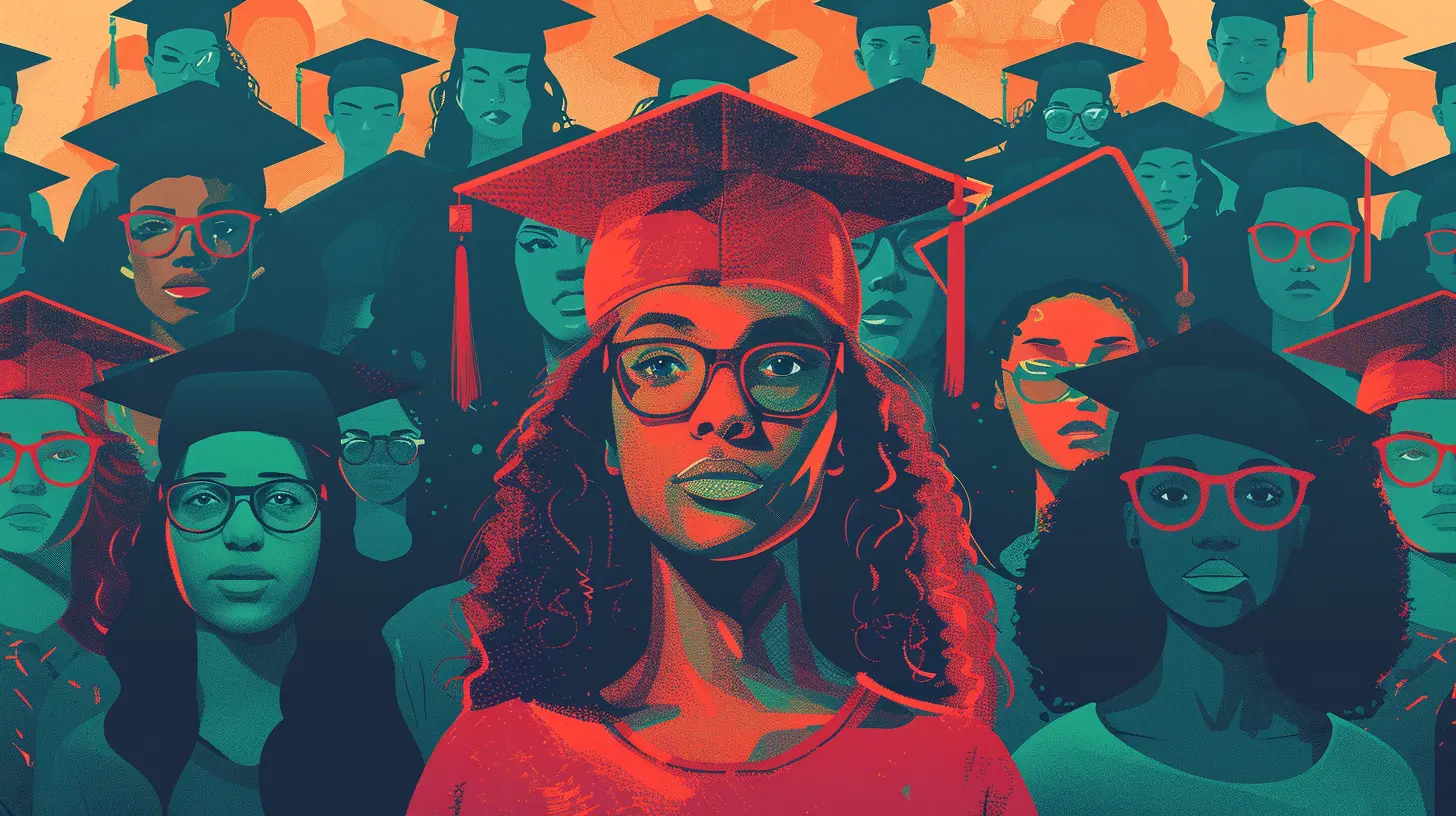The Importance of Diversity and Inclusion in Colleges
30 October 2025
College is more than just lectures, exams, and late-night study sessions. It’s a melting pot of ideas, backgrounds, and experiences. But for this melting pot to truly work, diversity and inclusion have to take center stage.
What do we mean by diversity? It’s not just about race or ethnicity—it includes gender, religion, socioeconomic background, disability, and so much more. Inclusion, on the other hand, ensures that everyone feels valued and heard, no matter their background.
So why does this matter in colleges? Let’s break it down.

The Role of Diversity in Education
1. Promotes Broader Perspectives
Ever had a conversation with someone from a completely different background, and suddenly, your whole perspective shifts? That’s what diversity does. It exposes students to different ways of thinking, leading to more well-rounded individuals.For instance, a student from a small town might see life differently from someone raised in a big city. When these perspectives collide, it fosters creativity, empathy, and critical thinking.
2. Enhances Academic Performance
Believe it or not, diversity isn’t just good for social engagement—it actually boosts academic performance. Studies have shown that students in diverse environments tend to perform better because they’re exposed to a wider range of ideas.When students learn alongside peers with differing experiences, discussions become richer, problem-solving becomes more dynamic, and overall learning improves.
3. Prepares Students for the Real World
Let’s face it—society is diverse. The workplace, communities, and even friendships are built on interacting with people from various backgrounds. If students experience diversity in college, they're better equipped to navigate the professional world.Think about it: If you’ve already worked on group projects with people of different cultures, collaborating with international colleagues in your future job won’t feel overwhelming.

Why Inclusion Is Just as Important
1. Creates a Sense of Belonging
Imagine stepping into a room where no one acknowledges your presence. Would you feel motivated to contribute or speak up? Probably not.Inclusion ensures that every student feels valued, respected, and heard. It’s not enough to simply have diverse students on campus—colleges must actively create environments where everyone has a voice.
2. Reduces Discrimination and Bias
When inclusion is prioritized, it helps break down stereotypes and unconscious biases. Colleges that promote inclusive policies create safer and more accepting communities where discrimination has no place.For example, when students interact with people from different backgrounds regularly, prejudices fade, and understanding replaces judgment.
3. Encourages Personal Growth
Inclusive environments push students out of their comfort zones. They learn to challenge their own biases, listen to others’ experiences, and grow into more empathetic individuals.By interacting with people who have different viewpoints, students develop emotional intelligence—an invaluable skill for both personal and professional life.

How Colleges Can Foster Diversity and Inclusion
1. Implementing Inclusive Admission Policies
Colleges need to ensure that students from all backgrounds have equal opportunities. This includes offering scholarships, financial aid, and outreach programs to underrepresented communities.2. Encouraging Open Discussions
One of the best ways to promote diversity is through dialogue. Colleges should host forums, panel discussions, and cultural events where students can share experiences and engage in open conversations.For instance, organizing events like diversity weeks, cultural festivals, and inclusivity workshops can help students learn about different traditions and perspectives.
3. Supporting Student Organizations
Clubs and organizations play a huge role in fostering inclusion. Colleges should support student-led groups that represent different cultures, identities, and interests.When students have spaces where they feel comfortable expressing themselves, they’re more likely to feel a sense of belonging on campus.
4. Providing Training for Faculty and Staff
Diversity and inclusion efforts shouldn’t stop at students. Faculty and staff should receive training on cultural competency, unconscious bias, and inclusive teaching methods.Professors who understand diverse perspectives can create more inclusive classroom environments where every student feels encouraged to participate.
5. Promoting Representation in Leadership
Colleges should also ensure diversity in administration and leadership roles. When students see people from various backgrounds in influential positions, it reinforces the idea that everyone has the potential to succeed.6. Creating Safe Spaces
Safe spaces allow students to express themselves without fear of judgment or discrimination. Whether it's LGBTQ+ resource centers, multicultural student centers, or peer support groups, these spaces provide crucial emotional support.
The Long-Term Impact of Diversity and Inclusion
1. Strengthens Social Cohesion
When students learn to work and live alongside people from different backgrounds, it fosters a sense of unity. They build friendships, partnerships, and professional networks that expand beyond their college years.2. Drives Innovation and Creativity
Some of the most groundbreaking ideas come from diverse teams. When different perspectives come together, it sparks innovation. Diversity in colleges ensures that students develop the creative problem-solving skills they’ll need in the workforce.3. Leads to a More Equitable Society
Colleges play a massive role in shaping future leaders. When institutions prioritize inclusion, they help create a world where opportunities are accessible to everyone, regardless of background.Conclusion
Diversity and inclusion in colleges aren't just buzzwords—they're essential for a thriving educational environment. They enrich learning, improve social interactions, and prepare students for a diverse world.Ultimately, a college experience that embraces diversity and inclusion helps shape better thinkers, better professionals, and better human beings. So whether you're a student, educator, or policymaker, it's time to champion inclusivity in higher education.
all images in this post were generated using AI tools
Category:
Higher EducationAuthor:

Madeleine Newton
Discussion
rate this article
1 comments
Isla McIntyre
Diversity and inclusion enrich college experiences, fostering growth and understanding.
November 1, 2025 at 3:23 AM

Madeleine Newton
Thank you for highlighting this! Indeed, diversity and inclusion are vital for creating a more enriching and transformative college environment.


